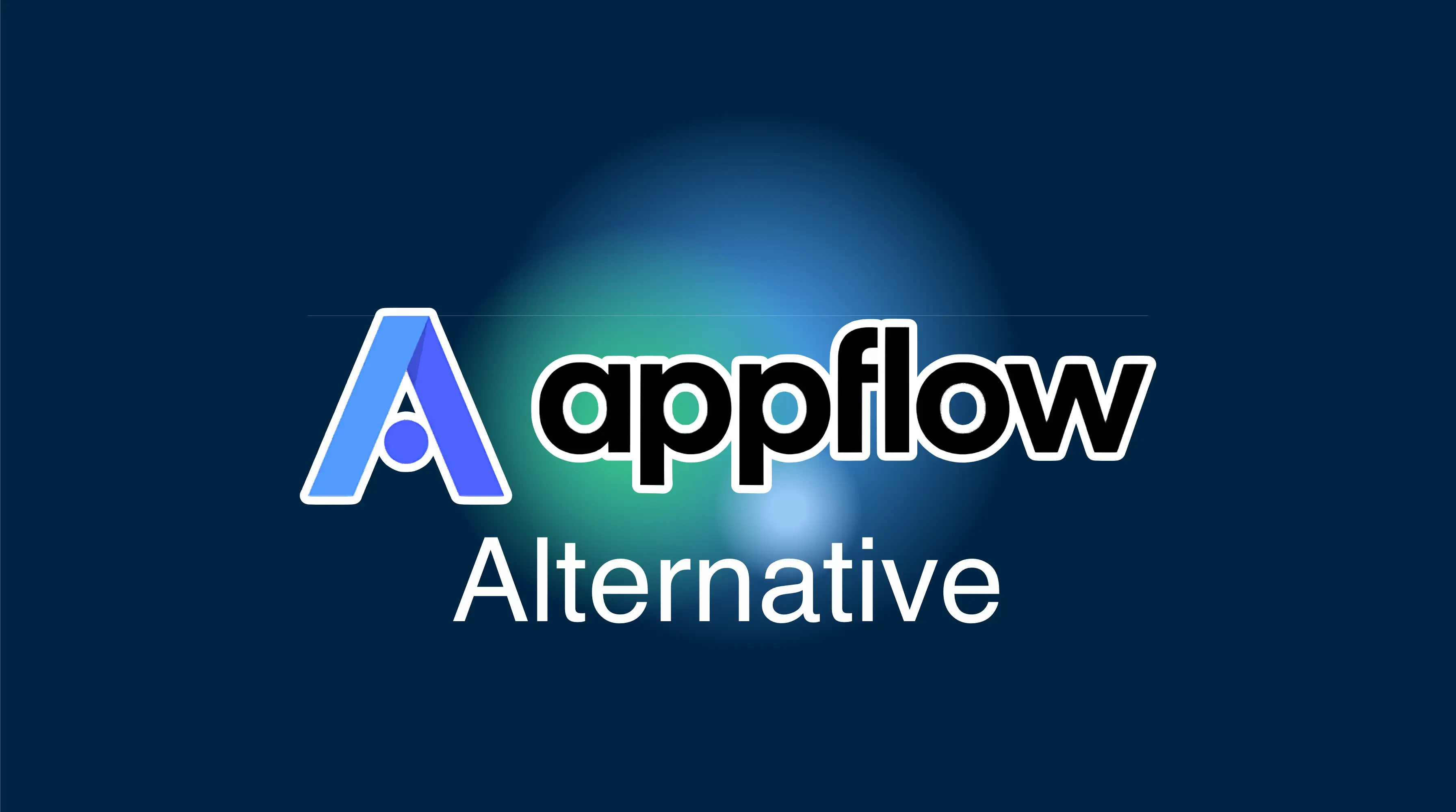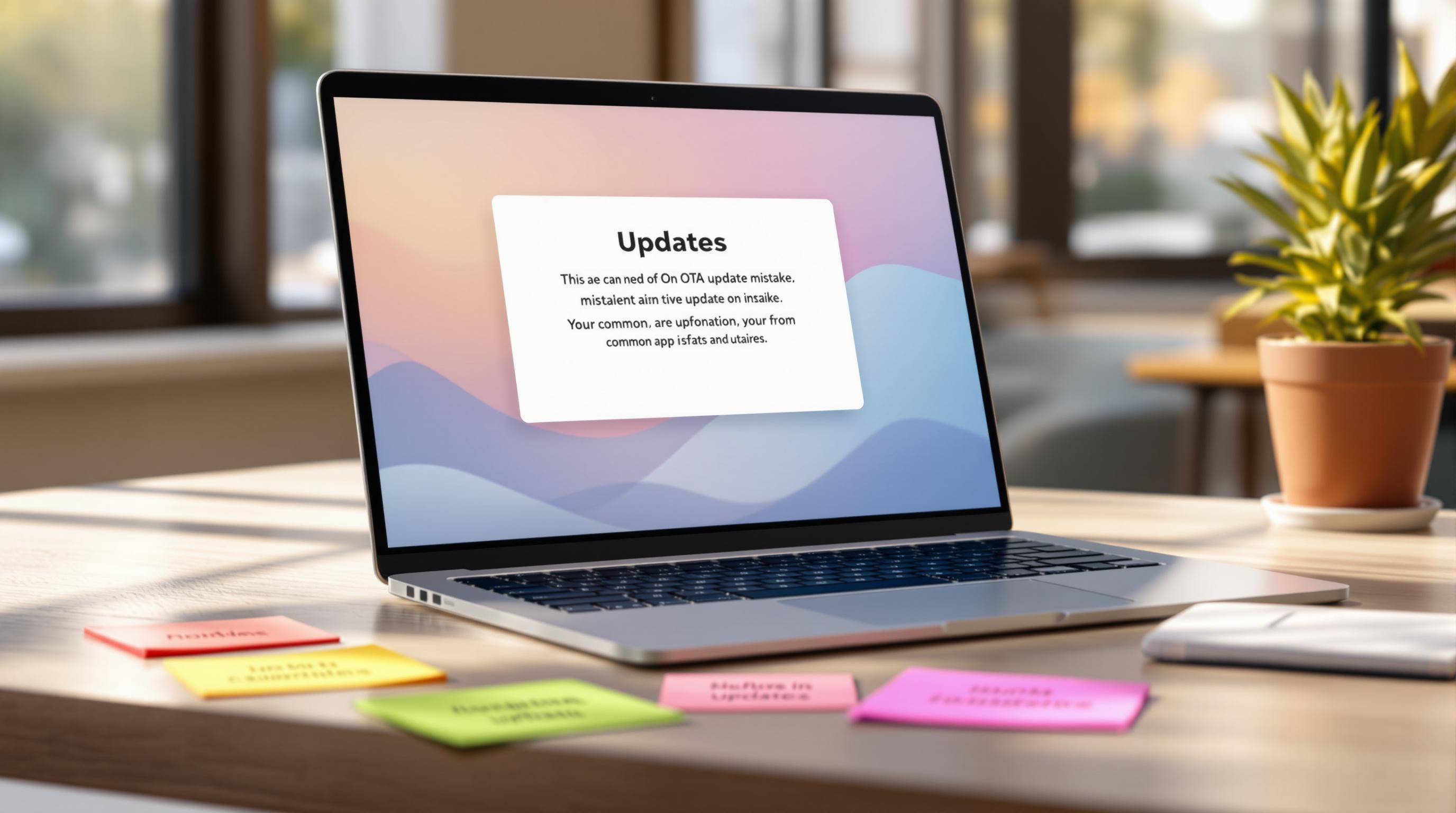Ionic Appflow는 개발자가 모바일 앱을 빠르게 구축, 테스트 및 배포할 수 있는 다양한 도구와 서비스를 제공하는 클라우드 기반 모바일 앱 개발 플랫폼입니다. 지속적인 통합 및 배포, 충돌 보고와 같은 기능을 제공하여 개발자가 앱의 성능을 추적하고 사용자에게 원활하게 실행되도록 보장할 수 있습니다.
Ionic Appflow의 주요 기능 중 하나는 실시간 업데이트 지원입니다. 이를 통해 개발자는 사용자가 새 버전의 앱을 다운로드할 필요 없이 실시간으로 앱의 콘텐츠와 기능을 업데이트할 수 있습니다. 즉, 사용자는 업데이트를 다운로드하고 설치하는 과정을 거치지 않고도 최신 기능과 개선 사항을 바로 이용할 수 있습니다.
이미 자체 지속적 통합 솔루션을 사용하고 있지만 Ionic Appflow의 실시간 업데이트 기능에 관심이 있다면, Ionic Appflow 사용 비용이 부담될 수 있습니다. 이 경우 더 저렴한 가격으로 실시간 업데이트를 제공하는 다른 플랫폼을 고려해볼 수 있습니다.
한 가지 옵션은 Digital shift OU 회사에서 만든 오픈소스 Capacitor 플러그인인 Capgo입니다. Capgo는 Ionic Appflow처럼 실시간 업데이트를 제공하며, 다양한 지속적 통합 도구와 통합될 수 있습니다. 이를 통해 기존의 지속적 통합 설정을 계속 사용하면서도 실시간 업데이트의 편리함과 유연성을 활용할 수 있습니다.
물론 사용을 고려 중인 플랫폼의 기능과 비용을 신중하게 평가하고, 귀하의 요구사항과 예산에 가장 잘 맞는 솔루션을 선택하는 것이 중요합니다.
이를 위해 비교하기 쉽도록 명확하고 간단한 표를 만들었습니다.
기능 비교
| 기능 | Capgo | Appflow |
|---|---|---|
| 실시간 업데이트 | ✅ | ✅ |
| 업데이트 시간 | < 1분 | < 10분 |
| 업데이트 채널 | ✅ | ✅ |
| 무료 체험 | ✅ | ❌ |
| 버전 되돌리기/채널 변경 | ✅ | ❌ |
| 설치 통계 | ✅ | ❌ |
| 테스트용 샌드박스 앱 | ✅ | ❌ |
| Capacitor 플러그인 | ✅ | ❌ Cordova 호환 |
| Cordova 플러그인 | ❌ 백포트 가능 | ✅ |
| 합리적인 가격 | ✅ $14/월부터 | ❌ $499/월부터 |
| 네이티브 빌드 | ❌ | ✅ |
| 종단간 암호화 | ✅ | ❌ Portal만 해당 |
| 100% 오픈소스 | ✅ | ❌ |
| Portal | ❌ 출시 예정 | ✅ |
| CI/CD | ❌ 인기 있는 도구 튜토리얼 제공 | ✅ |
지속적 통합 대안
Capgo를 사용하여 실시간 업데이트를 활용하고 싶지만 지속적 통합 솔루션이 없는 경우, GitHub Actions를 사용하여 저비용 지속적 통합 워크플로우를 쉽게 설정할 수 있습니다. GitHub Actions는 GitHub 저장소용 무료 내장 지속적 통합 및 배포 서비스로, 개발자가 소프트웨어 개발 워크플로우를 자동화할 수 있습니다.
GitHub Actions와 Capgo로 지속적 통합을 설정하려면, 먼저 앱 코드용 GitHub 저장소를 만들어야 합니다. 그런 다음 저장소에 코드가 푸시될 때마다 실행되어야 할 단계를 정의하는 워크플로우 파일을 만들 수 있습니다. 예를 들어, 간단한 워크플로우 파일에는 앱을 빌드하고 테스트한 다음 Capgo를 사용하여 실시간 업데이트를 만들고 앱 사용자에게 배포하는 단계가 포함될 수 있습니다.
이 설정이 완료되면, 앱 코드를 변경하고 GitHub 저장소에 푸시할 때마다 워크플로우 파일이 트리거되고 지정된 단계가 실행됩니다. 이를 통해 최소한의 노력으로 JS 앱을 자동으로 빌드, 테스트 및 배포할 수 있으며, 실시간 업데이트의 편리함과 유연성도 활용할 수 있습니다.
전반적으로 GitHub Actions와 Capgo를 사용하는 것은 실시간 업데이트를 사용하고 싶지만 자체 지속적 통합 설정이 없는 사람들에게 비용 효율적인 솔루션이 될 수 있습니다. 이러한 도구를 활용하면 클라이언트는 앱 개발 프로세스를 자동화하고 빠르고 쉽게 업데이트를 사용자에게 배포할 수 있습니다.
Capgo로 CI/CD를 설정할 준비가 되었다면, IOS용 튜토리얼을 따라할 수 있습니다.
더 나아가기
솔직히 말하면, 저는 오랫동안 전담 지원 담당자가 필요한 큰 팀들에게 Appflow를 추천해왔습니다. 하지만 이제는 변화가 필요한 시점이라고 생각합니다.
Capgo는 이제 모든 규모의 팀이 사용할 수 있을 만큼 성숙해졌고, 훨씬 더 저렴합니다.
전담 지원 담당자가 필요한 큰 팀이라면, 저에게 연락 주시면 함께 해결책을 찾을 수 있습니다.
Capgo가 셀프 서비스를 지향하더라도, 저는 사용자들을 위해 항상 함께하고 있습니다.
네이티브 코드 빌드 구성도 도와드릴 수 있으며, 이를 위해 Appflow에 비용을 지불할 필요가 없습니다.
오픈소스 셀프 서비스 커뮤니티 주도 도구를 좋아하신다면,
아래에서 우리와 함께하세요 👇




